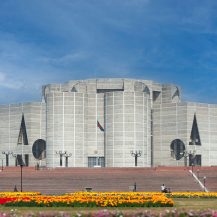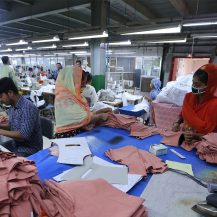NAVIGATING AN ECONOMY ON EDGE: State of the Bangladesh Economy
By
Defying a Perfect Economic Storm
From the start, the year 2023 was beset with macroeconomic challenges of the worst kind. The troika of macro indicators – inflation, exchange rate and foreign exchange reserves – showed signs of volatility that lasted for much of the year and remained unresolved, albeit on the mend. The long period of macroeconomic stability, both internal and external, that characterised the Bangladesh economy for over twenty-five years seems to have petered out in 2023. Challenges have emerged on multiple fronts: a spike in domestic prices of essential food products, depletion of foreign exchange reserves, massive exchange rate depreciation, deficits in the financial account of the balance of payments (BOP) resulting in overall BOP deficits, conflicts in fiscal and monetary policy coordination in taming inflation and so on.
This is nothing short of a perfect economic storm for the Bangladesh economy, unprecedented in scope and intensity of the problems. Add to that the cloud of political bickering interspersed with often violent disruptions to production and overall economic activities via hartal and aborodh that preceded the January elections. An undercurrent of uncertainty looms on the horizon. The economic ramifications of the combined effect of these developments could not be more acute and wide-ranging. Such confluence of political and economic challenges in a trade-integrated middle-income economy like Bangladesh breeds capital flight, of which there are many indications.
That said, this is hardly the time to give doomsayers the upper hand. On the positive side, we have the Padma Bridge – the longest river bridge in the country – now in full operation (rail and road links), implemented within a reasonable time frame and cost. The first undersea tunnel in South Asia – the Bangabandhu Tunnel in Karnafuli – is now open to traffic, a project that was completed in record time. Dhaka Metro Rail now links Uttara with Motijheel slashing travel time to 31 minutes in place of 2-3 hours typical journey on a Dhaka workday. Finally, the country is now fully connected – East, West, North, South – by road network, with full rail connectivity imminent. These transformative megaprojects and more that became operational in 2023 will have game changing impacts with profound efficiency dividends – in terms of time and cost reduction –for the society and economy. Precise quantitative estimates will have to be worked out but suffice it to say that it will be substantial and could add up to 1% to GDP growth over the medium- to long-term.





